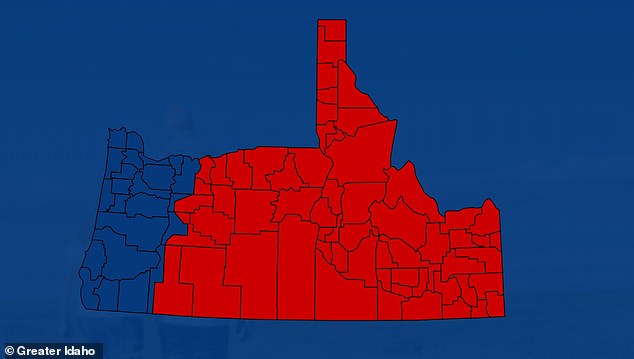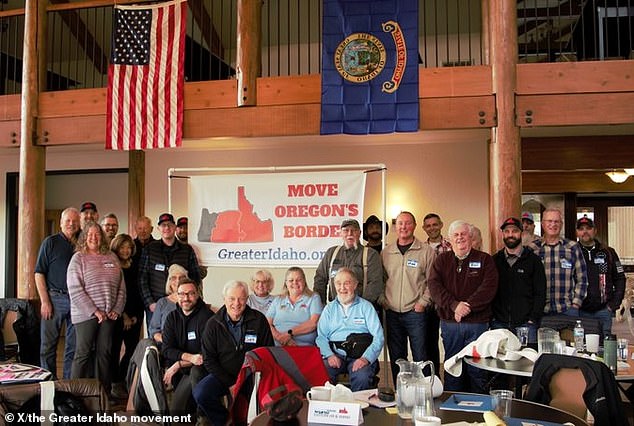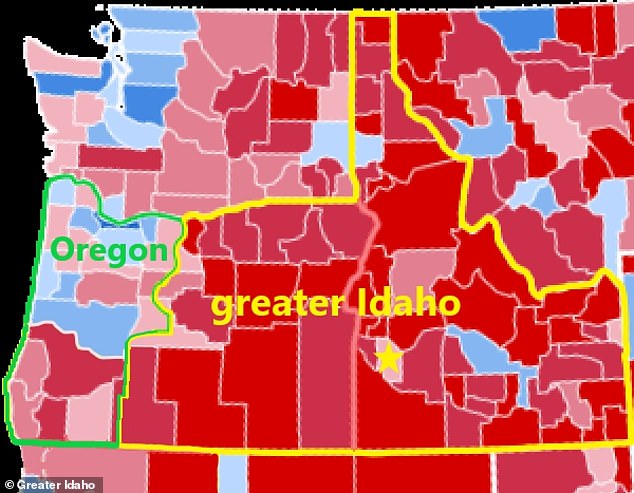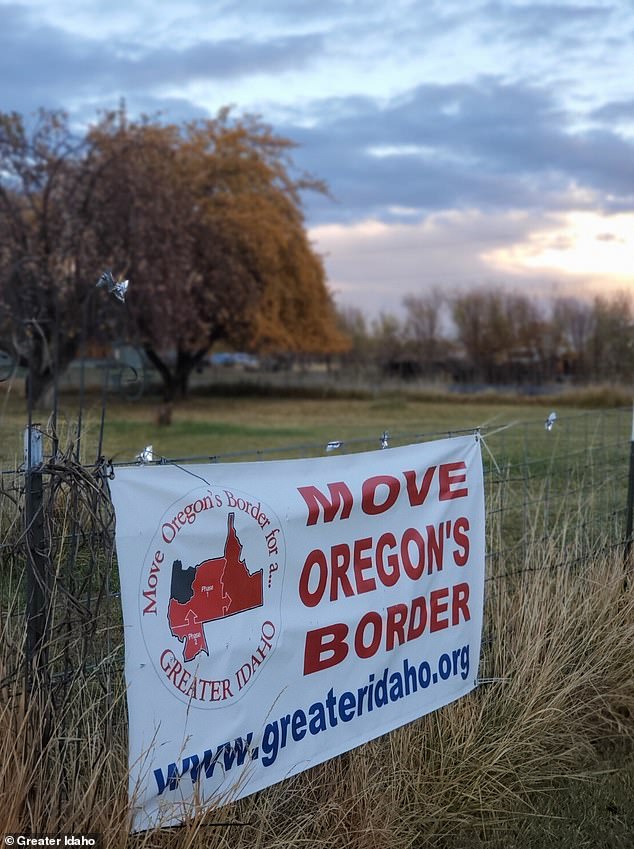Ringleader of Greater Idaho Movement reveals why Oregon counties want to secede and join the Gem State
The leader of a group of Oregonians determined to leave the state has revealed why they want to escape liberal policies by joining Idaho.
Matt McCaw is the executive director of the movement to move Oregon’s border 200 miles to the left, which is called The Greater Idaho Movement.
The proposal seeks to move the border with Oregon so that 14 counties and several partial counties fall under Idaho state lines.
McCaw said the movement was created to bridge the growing “tug of war” in Pacific Northwestern State.
“The state of Oregon is geographically divided by the Cascade Mountain Range, and that geographic divide is also a huge cultural divide,” McCaw said. Fox news.
Matt McCaw is the executive director of the movement to move Oregon’s border 200 miles to the left, which is called The Greater Idaho Movement.

The proposal, pictured, aims to move the Oregon border 200 miles west, meaning 14 counties and several partial counties would fall under Idaho state lines.
“So on the west side of Oregon you have a different climate, a different economy, a different culture and more urban. It’s a very different place than the east side, which has farmers who are very conservative and traditional.”
He continued, “You have two very different groups of people in Oregon trying to play tug-of-war over state government.”
McCaw explains that the movement’s plan is to avoid the conflict created by two distinctly and fundamentally different groups of people.
He suggests that whichever party is in power, currently the Democrats, is imposing its values and policies on other people – who live hundreds of miles away.
Organizers behind the Greater Idaho movement say eastern Oregon residents are being alienated by the state’s progressive policies, which they blame for high crime rates.
They argue that a move to Idaho would allow residents to benefit from lower taxes and provide better representation and governance.
McCaw used the example of the COVID-19 pandemic — in which, he said, policies were forced on reluctant Oregonians unwilling to adhere to quarantine orders or mask mandates.
“During COVID, Oregon has been one of the most extreme. They closed businesses across the state, they closed churches across the state, they closed schools, they imposed mask mandates and later vaccination mandates,” McCaw said.
“This was all state policy passed through government agencies like the Oregon Health Authority, which made these policies for the entire state.”
Crook County was the latest to approve the Greater Idaho Measure after a vote last Tuesday.

Crook County was the latest to approve the Greater Idaho Measure after a vote last Tuesday
Measure 7-86, as it was known, passed by 53 percent in Crook County in the latest boost to the Greater Idaho campaign.
However, the vote is not legally binding and merely means that residents are in favor of informing state and federal representatives that they support negotiations to annex part of Oregon.
“Voters in eastern Oregon have spoken loud and clear about their desire to see the border talks move forward,” McCaw previously said.
“With this latest outcome in Crook County, there is no longer an excuse for the Legislature and the Governor to continue to ignore the wishes of the people.
“We call on the Governor, the Speaker of the House of Representatives, and the Speaker of the Senate to sit down with us and discuss the next steps toward transforming governance for the people of Eastern Oregon, and also that the Legislature will hold hearings on what a potential border change will look like. .’
“For the past three years, we’ve gone directly to voters and asked them what they want for their state government,” President Mike McCarter added.

This map outlines the counties that would be incorporated into the state of Idaho if the move is approved

According to the group’s leader, Matt McCaw, the movement was created to bridge the growing “tug of war” in the Pacific Northwestern state.
“What they are telling us through these votes is that they want their leaders to push the envelope.
“In our system, it is the people who are in charge, and it is time for the leaders who represent them to do so.”
Oregon was plunged into chaos after lawmakers introduced a controversial 2021 law known as Measure 110, which eliminated criminal penalties for drug possession.
Under Measure 110, police issued addicts a citation, imposing a $100 fine, which was rescinded if they called a treatment referral hotline and agreed to participate in a health assessment.
The system turned out to be useless: more than 95 percent of the tickets were ignored.
Of the 4,000 drug citations issued during the first two years of Measure 110, only 40 people called the hotline with questions about treatment. As a result, each call was calculated to cost taxpayers $7,000.
The measure was ultimately reversed last month by Oregon Governor Tina Kotek in an embarrassing reversal.
